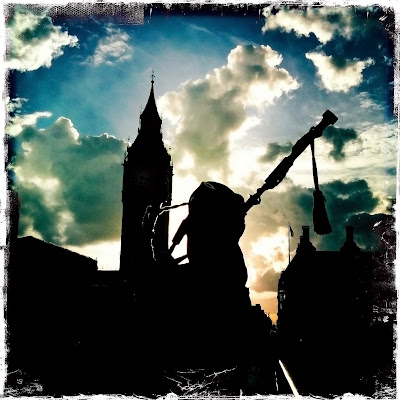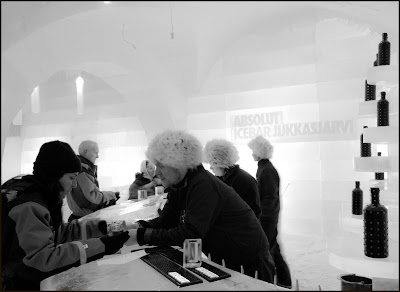Wednesday, December 29, 2010
Tuesday, December 28, 2010
Monday, December 27, 2010
Sunday, December 26, 2010
Friday, December 24, 2010
Wednesday, December 22, 2010
Tuesday, December 21, 2010
One of the countless fairy tale lakes in Bavaria, just before a stroll over the ice with family. Having grown up in Munich, the Bavarian landscape will be forever ingrained in my visual memory, no matter where I have lived since. In fact, it would be much more appropriately described as a visceral memory, going well beyond mere seeing. On this subject, I highly recommend a book by Simon Schama: Landscape and Memory.
http://www.randomhouse.com/catalog/display.pperl/9780679735120.html
Monday, December 20, 2010
Sunday, December 19, 2010
Friday, December 17, 2010
Conservator Discovers Initials In His Own Eye That Might Unlock All Of The World's Mysteries.
Experts claim the initials could shed light on someone's identity, or possibly reveal ancient secrets, such as how the pyramids were built, or how the stars and planets were formed. The initials were found to be written in Palatino script which provided further clues.
Tuesday, December 14, 2010
Monday, December 13, 2010
Sunday, December 12, 2010
Tuesday, December 7, 2010
Sunday, December 5, 2010
Wednesday, November 24, 2010
Tuesday, November 23, 2010
Saturday, November 20, 2010
Wednesday, November 17, 2010
Just east of Yosemite, tufa at Mono Lake. The ancient lake has no outlet, and at about 1 million years, it is one of the oldest lakes in North America. If you are planning a trip to Yosemite, don't miss Mono Lake -it is only 13 miles east from one of Yosemite's park entrances. About 30 miles north of Mono Lake is one of the best-preserved ghost towns of the west: Bodie, and I will dedicate a separate series of blog entries to Bodie and its ghosts this coming spring.
Saturday, September 11, 2010
Wednesday, September 1, 2010
Monday, August 30, 2010
Saturday, August 28, 2010
This picture I took of a barn in Bavaria taken this summer prompted me to think about perspective, type of lens used, and the general effect of cropping. I edit every picture I take, some more, some less. I have long moved beyond the question of the ethics concerning the extent of the modification of a photograph. To me, it is -at least for the scope of my photographs- a non-issue. The picture I am posting is one that was generated in my head, and the camera is simply a tool that I use for translation. There is street photography that captures a story in a split second, and it might require no post processing, but in general everything else needs post processing, and Photoshop has simply replaced the tedious dodging and burning in the darkroom. I feel that the ethics of magazine cover photography, my profession of painting conservation, and the field of plastic surgery are closely related, and merit a separate post.
Anyway, take the following photograph of the same barn: Of course it is the exact same photograph, I simply cropped a couple of inches off the sky. Doesn't the barn feel flattened, compressed at first? I think that our brain is possibly playing a trick on us, as we are conditioned to read the 'cinematic' format as compressed. Just like our brain reads a bright, full moon close to the horizon as particularly large at times, even though it never is is any larger than when it is higher up in the sky.
Friday, August 27, 2010
Peter Paul Rubens is not for everyone, his subjects are not necessarily 'pretty' in the traditional sense, but once you look beyond the surface it is difficult not to be awed by the masterful painterly quality found in all of his works. It is interesting to realize that Rubens is one of the few painters around whose style and technique is so unique that there are rarely authenticity issues involving his paintings. The above detail is from one of his famous naughty paintings at the Alte Pinakothek in Munich, The Drunken Silen. The Rubens gallery at the Alte Pinakothek is truly amazing, and I'll always remember one specific day many years ago:
I used to work in the conservation department in the early 1990s, working on Old Master paintings for the Alte Pinakothek at the Doerner Institut (where the conservation studios are located). One afternoon, a security guard interrupts our meeting, saying that they had a problem over at the Alte Pinakothek, and they didn't know how to deal with it. A visitor had walked into the large Rubens gallery, started to undress until split-naked, put his clothes neatly into a corner of the gallery, and then quietly strolled through the room, studying each painting intensely. The security guards and other visitors were rather amused, and so were we. Finally he was told that it wouldn't be really appropriate to walk around naked in a museum to which he he replied that there shouldn't be a problem since everybody else in the room was naked (in Rubens' paintings), but in the end he obliged.
Subscribe to:
Comments (Atom)


















































